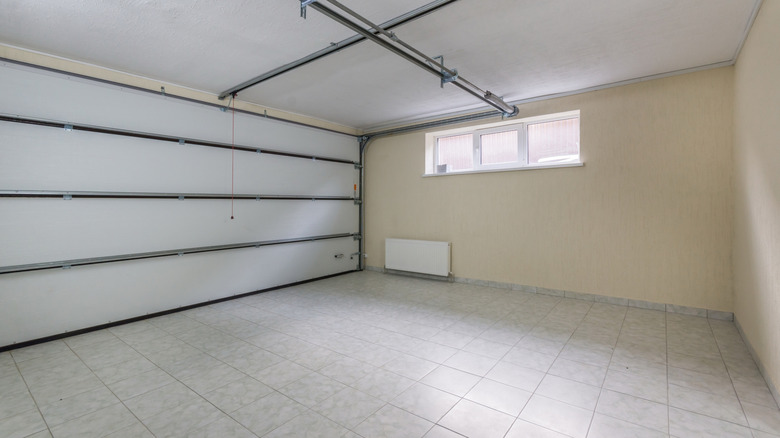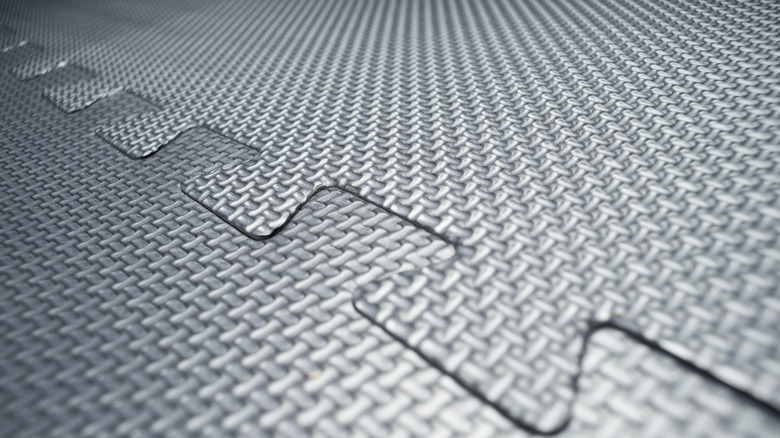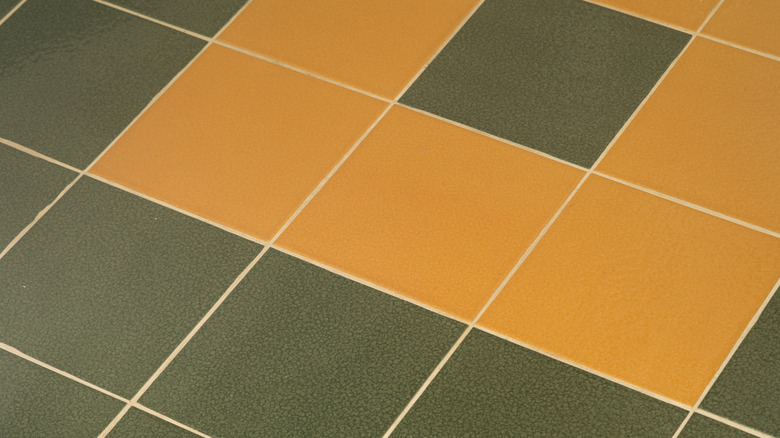The Best Material Options For Garage Floor Tiles
Garage floors deal with a lot — heavy cars, spilled oil, dropped tools, and even the occasional coffee spill. If you want to give your garage a little extra love (and style), floor tiles are a great option. Not only do they protect the floor, but they also make your garage look like a fancy car showroom. Not all tiles are created equal, however, and choosing the right type can make all the difference. Of all the materials available, rubber and ceramic tiles are among the very best for garage floors.
Rubber tiles are the yoga mats of the garage floor world — flexible, forgiving, and shock absorbent. These tiles are perfect if you tend to drop tools (or if your kids use the garage as a play area). Rubber tiles are slip-resistant even when wet, so they are a great option if you always track in rain or snow. They are also durable, and they can handle the weight of a car without cracking under pressure.
Ceramic tiles, on the other hand, bring the glam factor. These tiles are sleek, sturdy, and perfect if you want your garage to double as a man cave or workshop. They are resistant to stains, scratches, and high temperatures, which makes them an ideal choice for serious gearheads or anyone who tends to tinker in the garage. They also last for decades with proper care, so they are an investment that pays off. Choose a textured ceramic tile to prevent slipping — especially if your garage tends to get wet.
Factors to consider when choosing garage floor tiles
Durability is key when choosing garage floor tiles. Rubber tiles are great for absorbing shocks, while ceramic tiles are better for withstanding heavy loads. Always check the weight limit and impact resistance of any material you're considering before buying. Choosing the cheaper option might be tempting, but if your tiles crack or warp after a few months, you'll regret not investing in a more durable material.
Ease of maintenance is another factor to consider before choosing garage floor tiles, because nobody has time to scrub the garage down every week. Rubber tiles can be wiped down with a damp mop, and spills won't seep through thanks to their non-porous surface. Ceramic tiles might require a little more attention. While they resist stains, the grout lines between them can get grimy over time, so the occasional scrubbing might be needed. Choose a material that fits your cleaning style (or lack thereof).
The material you choose should also be resistant to chemicals and oils. Garages will almost always endure spills, from motor oil to cleaning chemicals, and your tiles need to stand up to these spills without getting ruined. Ceramic tiles are highly chemical resistant, making them ideal for DIYers who use their garage as a workshop. Rubber tiles also hold up well against oil spills, but they can sometimes absorb certain chemicals if not cleaned quickly. Check the manufacturer's specifications to ensure that the tiles you're considering can handle whatever life (or your car) throws at them.
Care and maintenance tips for garage floor tiles
Maintaining your garage floor is essential if you expect your new tiles to serve you for years to come. For starters, always address spills quickly. Garage floor tiles might be tough, but even the strongest materials need a little TLC. If you spill oil, paint, or any other liquid, clean it immediately. Rubber tiles are forgiving, but leaving chemicals on them for too long can cause staining. Ceramic tiles are less absorbent, but if something acidic sits on them for hours, it might cause damage. Keep a mop or paper towels handy for those inevitable "oops" moments.
It's also a good idea to inspect your tiles regularly for any cracks, chips, or other signs of wear, and replace damaged ones immediately. The beauty of both rubber and ceramic tiles is that they're easy to replace without redoing the entire floor. Keep a few spare tiles handy for quick swaps; your garage will always look as good as new.
Finally, avoid the use of harsh chemicals when cleaning. Using heavy-duty chemicals might seem like the easiest way to keep your garage floor spotless, but they can do more harm than good. Bleach, ammonia, and similar products can eat away at rubber tiles and dull the finish of ceramic ones. Stick to gentle, pH-neutral cleaners instead. A mild soap and water solution works wonders for both rubber and ceramic tiles. Not only will your tiles last longer, but you'll also save yourself from dealing with unnecessary damage.


